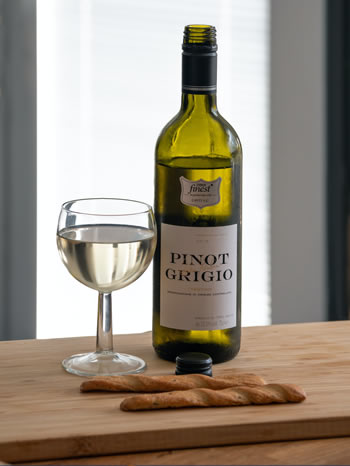WHAT IS A DRY WINE?
Dry Wine?
I work for a large retail wine/liquor chain and I deal with interesting customers daily. And, I like to view each interaction as an opportunity to offer something new for that individual, something that will give them joy beyond measure! To be successful in this endeavor, I always start a dialogue with a question regarding their wine preference. If I know what they enjoy in a wine, it will help me recommend the perfect bottle to enjoy with dinner that night.
Usually the discussion goes something like this: (Me) “So, do you like red or white wine?” (Have to start with the basics, you know!) Many times, their answer is red. And very often, the red wine turns out to be cabernet sauvignon. Great! Now we’re talking about one of my favorite varietals. (Me): “What style of cabernet do you enjoy drinking the most?” Now here is where we enter that dangerous ground that I call “it’s anyone’s guess what you’re trying to describe” territory. The customer, in his or her excitement to describe what they find enjoyable in a red wine, will often start with, “I like a dry wine, but not too dry.” 
What does the average person mean when they use the term “dry”? The average consumer thinks they should mention it because they have heard it used so often, although they don’t have a clue as to what it refers to when talking about wine styles.
Please don't waste another $20-$30 drinking a disappointing wine, let me show you how!
When referring to winemaking, dry technically means that during fermentation, all the sugar from the fruit has been converted to alcohol, resulting in wine that has no sweetness. So back to the customer who is trying to describe the style of wine that he or she enjoys. When they mentioned the word “dry”, they’re not usually referring to the sweetness of the wine. How do I know this? From their conversation going forward, it’s very evident what they are trying to describe. Remember when they said they liked a dry wine, but not too dry? They immediately defend it by saying that they really like fruit and/or tannins (when you hear the word “tannin”, think black tea which has a bitter astringency in your mouth). They will say that they don’t like sweet wines, but they don’t like dry ones either. So, it’s kind of a catch-22.
Please don't forget to download and complete your personal taste profile!
When shopping for wine, it would be more helpful if you mention what you enjoy tasting (perhaps you prefer black fruit like blackberry or black cherry, or notes of chocolate or licorice). Also, think about the wine’s finish on your palate. Do you enjoy those big tannins that are mouth-filling, or would you prefer an elegant finish?
By understanding the various descriptions of wine styles, you will have more success when looking for recommendations for a wine that you will enjoy drinking. So, the next time you walk in to your favorite wine shop, don’t simply ask for a dry wine. Take the time to describe what you like in your favorite wine.

.jpg)